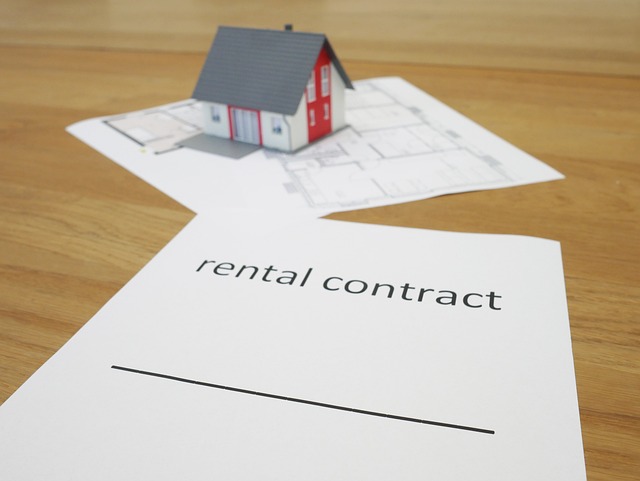Finding Rentals That Accept Housing Benefit: A Guide for Tenants
Renting while receiving housing benefit can feel like an uphill battle, but it doesn't have to be. This guide breaks down how to search smarter, communicate with landlords, and present a strong application. Learn how housing benefit works, how to avoid common roadblocks, and what your legal rights are as a tenant. Whether you're just beginning your search or have faced rejection, this guide offers practical tools to improve your chances of finding a home that accepts your support.

How to Find Housing That Accepts Benefits
Locating rental properties that welcome tenants receiving housing benefit requires a proactive and informed approach. Start by using online property portals that allow you to filter search results specifically for benefit-friendly landlords. Websites such as OpenRent, SpareRoom, and local council housing registers often indicate whether landlords are open to housing benefit claimants. Additionally, contacting local housing associations and charities can provide leads on available properties and landlords with inclusive letting policies.
Networking within your community can also prove valuable. Word-of-mouth recommendations from friends, family, or support workers may uncover opportunities not widely advertised. Some letting agents specialise in working with benefit recipients, so researching and reaching out to these agencies can streamline your search. Be transparent about your situation from the outset to avoid wasting time on properties where your application would not be considered.
Preparing a Rental Application on Benefits
A well-prepared rental application significantly improves your chances of securing a property. Gather all necessary documentation in advance, including proof of your housing benefit entitlement, identification, references from previous landlords or employers, and bank statements demonstrating financial responsibility. If you have a guarantor willing to support your application, include their details and supporting documents as well.
Present yourself professionally in all communications. Write a cover letter explaining your circumstances, employment status or income sources, and why you would be a reliable tenant. Highlight any stable rental history, timely bill payments, or other evidence of responsibility. Being organised and responsive during the application process demonstrates your commitment and can help overcome initial hesitations landlords may have about accepting benefit claimants.
Tenant Rights Under Housing Benefit
Understanding your legal protections is essential when renting with housing benefit. In the UK, it is unlawful for landlords to impose blanket bans on benefit claimants under the Equality Act 2010, as such policies can constitute indirect discrimination. If you believe you have been unfairly refused a tenancy solely because you receive benefits, you may have grounds to challenge the decision through legal channels or with the support of housing advocacy organisations.
You are entitled to the same rights as any other tenant, including a safe and habitable living environment, protection from unfair eviction, and the return of your deposit at the end of the tenancy, subject to reasonable wear and tear. Your housing benefit payments should be made directly to your landlord through the local council or Universal Credit system, depending on your circumstances. Ensure you understand the payment schedule and communicate any changes in your situation to the relevant authorities promptly to avoid arrears.
Communicating with Landlords Effectively
Effective communication builds trust and can help dispel misconceptions landlords may have about tenants receiving benefits. Be honest and upfront about your financial situation, but also emphasise your strengths as a tenant. Share references, proof of consistent payment history, and any other documentation that demonstrates reliability. If possible, offer to pay rent in advance or provide a larger deposit, though this should only be done if financially feasible and within legal limits.
Maintain regular contact with your landlord or letting agent throughout the tenancy. Report maintenance issues promptly, keep the property in good condition, and ensure rent is paid on time. Building a positive relationship can lead to longer-term stability and may even result in your landlord becoming more open to accepting benefit claimants in the future. Clear, respectful, and professional communication sets the foundation for a successful tenancy.
Navigating Rental Challenges with Government Support
Various government schemes and support services exist to help tenants on benefits overcome common rental challenges. Discretionary Housing Payments (DHP) can provide additional financial assistance if your housing benefit does not cover the full rent amount. Contact your local council to inquire about eligibility and application procedures. Some councils also offer rent deposit schemes or bond guarantees, which can help tenants who lack the upfront funds required to secure a property.
Charities and non-profit organisations such as Shelter, Citizens Advice, and local housing support groups offer guidance, advocacy, and sometimes direct assistance with finding accommodation. These organisations can help you understand your rights, negotiate with landlords, and access emergency housing if needed. Do not hesitate to reach out for support, as navigating the rental market on benefits can be complex, and professional advice can make the process far more manageable.
Understanding Typical Rental Costs and Support Levels
Rental costs across the UK vary significantly depending on location, property type, and market conditions. Housing benefit amounts are determined by Local Housing Allowance (LHA) rates, which are set by the government and reviewed annually. These rates are intended to cover a portion or all of your rent, depending on your household size and the area in which you live. However, LHA rates often fall short of actual market rents, particularly in high-demand urban areas.
Below is a general comparison of typical monthly rental costs and corresponding LHA rates for different property types in various UK regions. These figures are estimates and can fluctuate based on specific locations and market trends.
| Property Type | Region | Average Monthly Rent | Typical LHA Rate |
|---|---|---|---|
| 1-Bedroom Flat | London | £1,400 - £1,800 | £1,200 - £1,400 |
| 1-Bedroom Flat | Manchester | £700 - £900 | £600 - £750 |
| 2-Bedroom Flat | Birmingham | £800 - £1,100 | £700 - £900 |
| 2-Bedroom House | Leeds | £750 - £950 | £650 - £800 |
| 3-Bedroom House | Bristol | £1,200 - £1,500 | £1,000 - £1,200 |
Prices, rates, or cost estimates mentioned in this article are based on the latest available information but may change over time. Independent research is advised before making financial decisions.
Building a Stronger Application
Beyond documentation and communication, consider additional steps to strengthen your rental application. Offering references from employers, social workers, or community leaders can provide landlords with reassurance about your character and reliability. If you have recently overcome financial difficulties, explain the steps you have taken to stabilise your situation and prevent future issues.
Some tenants find success by offering to sign longer lease agreements, which can appeal to landlords seeking stability and reduced turnover. Additionally, demonstrating knowledge of your responsibilities as a tenant, such as understanding the terms of the tenancy agreement and your obligations regarding property maintenance, can further boost confidence in your application. Persistence and professionalism are key, as finding the right rental property may take time, but suitable options are available for those who remain diligent and well-prepared.




